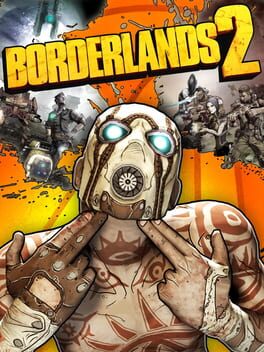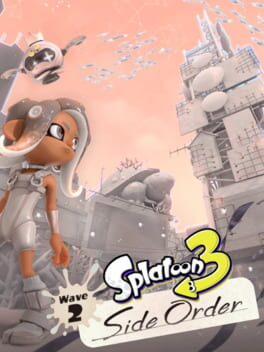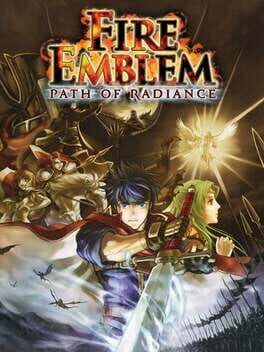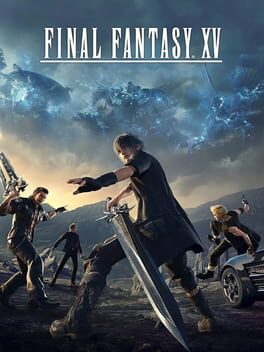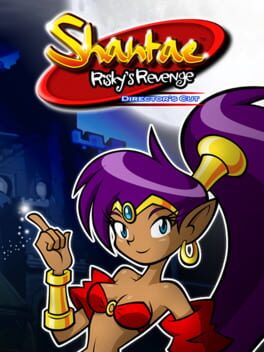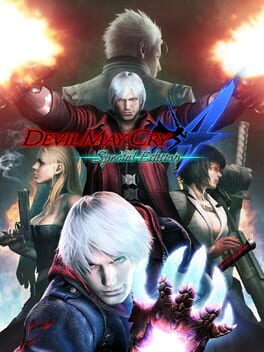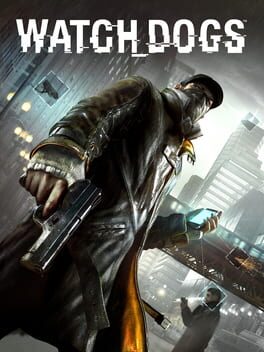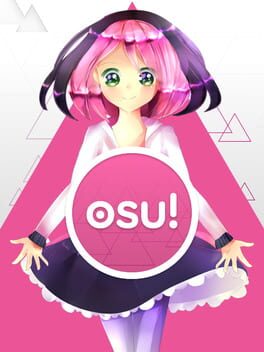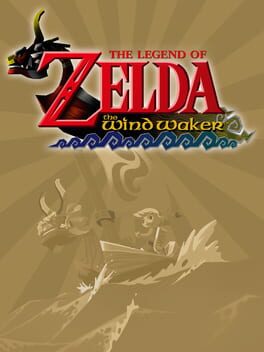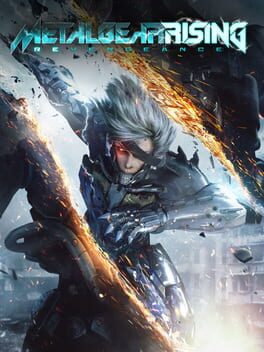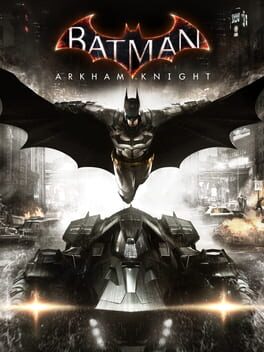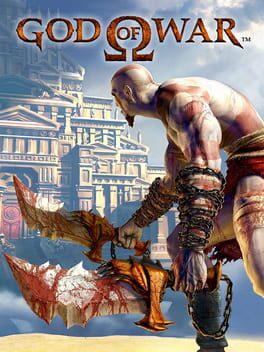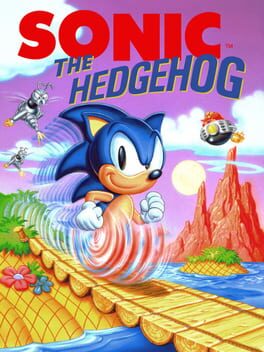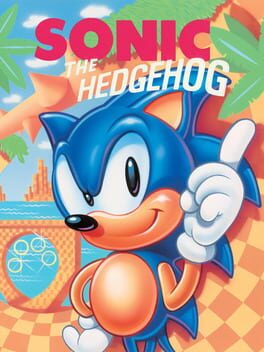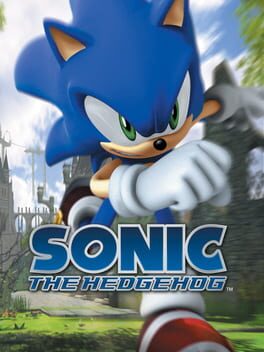SteeredMeat
12 reviews liked by SteeredMeat
Borderlands 2
2012
Borderlands 2: The Video Gaming Experience is a slightly acquired taste - but there is an undeniable flow here once you figure it out. With the Diablo influence finally finding its feet, the game walks the line between Zany and Serious in both its combat and narrative in a way thats riveting and compelling. The sad truth is: Gearbox will probably never write a character as good as Handsome Jack (or most of the cast) ever again.
In fact (hot take) it was probably essential that Borderlands 2 was written with a largely comedic lean, because the unserious attitude helps you feel less seriously about the games cheap feeling gameplay. The games looter-churn means youll be obligated to use guns that suck in a game where the shooting already kind of sucks, the artstyle is pretty but also very poorly assembled and buggy - it all feels less irritating (key word being “less”) when the world is already absurd and illogical.
In fact (hot take) it was probably essential that Borderlands 2 was written with a largely comedic lean, because the unserious attitude helps you feel less seriously about the games cheap feeling gameplay. The games looter-churn means youll be obligated to use guns that suck in a game where the shooting already kind of sucks, the artstyle is pretty but also very poorly assembled and buggy - it all feels less irritating (key word being “less”) when the world is already absurd and illogical.
'Marina is so hot' my eldest daughter insists on telling me. I do not fucking care. "I do not fucking care" I bellow to her. "Go downstairs and - sweet christ - flip burgers in my restaurant my self proclaimed child. for free"
"Oh father, hallowed be thy name, just for one mere Saturday morning may I-". I raise my eyebrow to such an extent that, as I had previously insisted, she walked downstairs to work in my restaurant. come to my restaurant after you finish this game please and that is not me talking to my daughter this time that is directed towards you
"Oh father, hallowed be thy name, just for one mere Saturday morning may I-". I raise my eyebrow to such an extent that, as I had previously insisted, she walked downstairs to work in my restaurant. come to my restaurant after you finish this game please and that is not me talking to my daughter this time that is directed towards you
Final Fantasy XV
2016
Final Fantasy XV is a beautiful game. That's a corny way to start off a review, but saying, "a Final Fantasy for fans and first-timers" is a corny way to start a game, so I must respond in kind. I know it had a long and troubled production, and that it came out unfinished, and it rubbed a lot of fans the wrong way. I remember reading forum discussions in 2013 where players would ask, "Do companies think it's right to make us wait ten years for a game?"
Well, if they put stuff out on par with this game, they absolutely fucking can. I'll get on with my life in the meanwhile. I'm a bit more sympathetic to those who played it on release. But I can't really know or care much about how the game was seven years ago, so much as what it was like when I was playing it seven days ago.
It tells the tale of four friends who set out on a journey to obtain a ring and end up fighting a threat that could plunge the world in darkness forevermore (J. R. R. Tolkien should sue). Prince Noctis and his childhood friends-turned-bodyguards are planning to have the best road trip ever before he gets married and saves the world and all that. These lads are a Japanese schoolgirl's wet dream - carelessly handsome, unabashedly silly, and more concerned with the trendiness of their clothes than the gravitas of their destiny.
This is the highlight of Final Fantasy XV - the main cast is a bunch of sheltered dandies who have to come to terms with the greatness that has been thrust upon them. Their personal growth, their earnest moments of brotherhood, and their banter-laden interactions are the heart of the narrative. The hero isn't a po-faced paladin of justice - he's one of the guys. Watching him mature into a true king is quite the journey.
Final Fantasy XV also has one of the most beautifully rendered open worlds I've seen. It caused me to appreciate nature more, because real life looks a lot like Final Fantasy XV. And trust me, you spend about as much time driving in this game as you would in real life. The car, the Regalia, is the fifth main character. If there's one thing I could wish for, it would be that your control over the car wasn't so limited for most of the game. But even with its mostly autopilot navigation, sitting back and admiring the scenery while listening to music from past FF titles was quite the experience.
This open-world design continues for half the game, of which most of your time will be spent doing sidequests. I'm told I generally rush RPGs, but I definitely didn't rush Final Fantasy XV, because there's so much to do - and so much fun to be had doing it. It's enough to put the main story on the backburner, it is, what with all the games-within-a-game it offers. Fishing? Monster hunting? Pinball on steroids? This game has it. And with the game's reward mechanics, plus the promise of interesting conversations with the supporting cast, nearly every sidequest feels worth doing. Even if it's a blatant advertisement for Cup Noodles. Look, they had to get the budget to make this game look so beautiful somewhere, okay?
In an inversion of Final Fantasy XIII, the first half of XV is open-world and laden with sidequests, while the second half is linear. I know 'linearity' is a dirty word to a lot of gamers, but I can't complain about it in either of these games. Once the plot in Final Fantasy XV starts getting funneled towards its conclusion, it also becomes much more focused and much more heartrending. I was almost in tears in this game's campaign as many times as I've been with all the previous games I've played put together. And I commend the game's writing and directing team for being unafraid to commit to the tragedy, something quite a few Final Fantasy stories pull back from at the last moment. For its story alone, Final Fantasy XV is a triumph.
This game also marks a true departure from the Active Time Battle system of past Final Fantasies, something the series has been trying to break away from for over a decade. Finally, the series commits to real-time hack-and-slash combat. There's a wait mode, but it seems to simply be an accessibility option for handicapped players. The combat is a lot of fun. Once you get the hang of the dodge/parry mechanics, and can switch between defense and aggression on the fly, there's a lot of fun to be had, even if the camera sometimes obstructs your view when fighting large enemies.
While I encountered no major bugs during my playthrough, there is no hiding the fact that this is very much a game that spent ten years in development. Final Fantasy XV is hardly consistent, but then again, the Final Fantasy series as a whole isn't consistent. My favourite analogy to make is that if Dragon Quest is AC/DC, Final Fantasy is Guns N' Roses. It's large, unwieldy and all over the place, but if it's a series of very low lows (fuck FF XIII-2), it also has very high highs. Final Fantasy XV is a very high high. If Metal Gear Solid V hadn't come out, on release XV would have been the greatest unfinished game ever made. But it is finished now, with DLC episodes to fill in the blanks and show how adaptable the game engine is to different gameplay styles, and it goes on sale for a fiver. There is no better time to play this game than now.
Ultimately, Final Fantasy XV is a fantastic experience with a lot to do and even more to appreciate. Its emphasis on brotherhood reminded me of my own college clique. I oughta call those guys sometime.
Well, if they put stuff out on par with this game, they absolutely fucking can. I'll get on with my life in the meanwhile. I'm a bit more sympathetic to those who played it on release. But I can't really know or care much about how the game was seven years ago, so much as what it was like when I was playing it seven days ago.
It tells the tale of four friends who set out on a journey to obtain a ring and end up fighting a threat that could plunge the world in darkness forevermore (J. R. R. Tolkien should sue). Prince Noctis and his childhood friends-turned-bodyguards are planning to have the best road trip ever before he gets married and saves the world and all that. These lads are a Japanese schoolgirl's wet dream - carelessly handsome, unabashedly silly, and more concerned with the trendiness of their clothes than the gravitas of their destiny.
This is the highlight of Final Fantasy XV - the main cast is a bunch of sheltered dandies who have to come to terms with the greatness that has been thrust upon them. Their personal growth, their earnest moments of brotherhood, and their banter-laden interactions are the heart of the narrative. The hero isn't a po-faced paladin of justice - he's one of the guys. Watching him mature into a true king is quite the journey.
Final Fantasy XV also has one of the most beautifully rendered open worlds I've seen. It caused me to appreciate nature more, because real life looks a lot like Final Fantasy XV. And trust me, you spend about as much time driving in this game as you would in real life. The car, the Regalia, is the fifth main character. If there's one thing I could wish for, it would be that your control over the car wasn't so limited for most of the game. But even with its mostly autopilot navigation, sitting back and admiring the scenery while listening to music from past FF titles was quite the experience.
This open-world design continues for half the game, of which most of your time will be spent doing sidequests. I'm told I generally rush RPGs, but I definitely didn't rush Final Fantasy XV, because there's so much to do - and so much fun to be had doing it. It's enough to put the main story on the backburner, it is, what with all the games-within-a-game it offers. Fishing? Monster hunting? Pinball on steroids? This game has it. And with the game's reward mechanics, plus the promise of interesting conversations with the supporting cast, nearly every sidequest feels worth doing. Even if it's a blatant advertisement for Cup Noodles. Look, they had to get the budget to make this game look so beautiful somewhere, okay?
In an inversion of Final Fantasy XIII, the first half of XV is open-world and laden with sidequests, while the second half is linear. I know 'linearity' is a dirty word to a lot of gamers, but I can't complain about it in either of these games. Once the plot in Final Fantasy XV starts getting funneled towards its conclusion, it also becomes much more focused and much more heartrending. I was almost in tears in this game's campaign as many times as I've been with all the previous games I've played put together. And I commend the game's writing and directing team for being unafraid to commit to the tragedy, something quite a few Final Fantasy stories pull back from at the last moment. For its story alone, Final Fantasy XV is a triumph.
This game also marks a true departure from the Active Time Battle system of past Final Fantasies, something the series has been trying to break away from for over a decade. Finally, the series commits to real-time hack-and-slash combat. There's a wait mode, but it seems to simply be an accessibility option for handicapped players. The combat is a lot of fun. Once you get the hang of the dodge/parry mechanics, and can switch between defense and aggression on the fly, there's a lot of fun to be had, even if the camera sometimes obstructs your view when fighting large enemies.
While I encountered no major bugs during my playthrough, there is no hiding the fact that this is very much a game that spent ten years in development. Final Fantasy XV is hardly consistent, but then again, the Final Fantasy series as a whole isn't consistent. My favourite analogy to make is that if Dragon Quest is AC/DC, Final Fantasy is Guns N' Roses. It's large, unwieldy and all over the place, but if it's a series of very low lows (fuck FF XIII-2), it also has very high highs. Final Fantasy XV is a very high high. If Metal Gear Solid V hadn't come out, on release XV would have been the greatest unfinished game ever made. But it is finished now, with DLC episodes to fill in the blanks and show how adaptable the game engine is to different gameplay styles, and it goes on sale for a fiver. There is no better time to play this game than now.
Ultimately, Final Fantasy XV is a fantastic experience with a lot to do and even more to appreciate. Its emphasis on brotherhood reminded me of my own college clique. I oughta call those guys sometime.
This was the first of the Shantae games I had played way back in early-mid 2018, when I had been randomly compelled to try out the series and became her number one advocate for a Smash Bros. inclusion, which... :(... but oh well. I think this is easily the one everyone should start with, as it's not as frustrating as the first game, yet nowhere near the polish and style of the later entries. It's a valuable playthrough if you're hoping to get into the series yourself, but I wouldn't blame anyone for skipping it to play Pirate's Curse instead.
Admittedly, Risky's Revenge is not quite as good as I had remembered as a kid. Dungeons are all pretty bland in design, sluggish to traverse, and the world outside of those dungeons can be rather barren. Shantae herself doesn't control the best either, her hair attacks always carry the long windup and cooldown whether she's fully upgraded or not. It's not terrible, especially for being only her second (...third?) outing, but it's not easy to come back to after playing the rest of her series. I couldn't help but think about how much more I'd be enjoying Pirate's Curse or Half-Genie Hero throughout my playthrough.
i'll also admit that i tried to play the first game before this and gave up after a short while, so hey, Risky's Revenge is definitely a fine improvement.
Admittedly, Risky's Revenge is not quite as good as I had remembered as a kid. Dungeons are all pretty bland in design, sluggish to traverse, and the world outside of those dungeons can be rather barren. Shantae herself doesn't control the best either, her hair attacks always carry the long windup and cooldown whether she's fully upgraded or not. It's not terrible, especially for being only her second (...third?) outing, but it's not easy to come back to after playing the rest of her series. I couldn't help but think about how much more I'd be enjoying Pirate's Curse or Half-Genie Hero throughout my playthrough.
i'll also admit that i tried to play the first game before this and gave up after a short while, so hey, Risky's Revenge is definitely a fine improvement.
Each time I play a Devil May Cry game, there’s this immense joy I feel. I don’t play hack’n’slashes often, but each time I do, for the most part at least, I absolutely adore them. Of course the same is true for Devil May Cry 4, it’s another amazing hack’n’slash. A lot of the changes and new additions to Devil May Cry 4 in particular are really good, but I do think it has some rough patches to it.
I adore Nero. As a character both writing-wise and playing as him, Nero is ridiculously fun. I think that’s primarily because of the Devil Bringer, I love being able to grab enemies and throw ‘em around. It also introduces some amazing segments of each chapter, I love how it becomes a sort of grappling hook. It’s a thing I’m a bit of a sucker for really. How you’re able to chain the Devil Bringer with Nero’s sword is really fun. And it makes combat super engaging to me. I’ll be honest though, there was something I knew that Nero could do, it looked like he was charging his sword, but I never really used it, and I don’t fully understand what it does. That though is assuredly on me.
And Dante is just as awesome as ever. It’s been a while since I played Devil May Cry 3, but I don’t think Dante has changed all too much. In fact, I think Devil May Cry 4 improves upon the one aspect that I didn’t care much for in DMC 3. Being able to switch styles on the fly by using the D-Pad was the only thing that Dante needed, and it made his abilities absolutely perfect. As well, I absolutely adore each weapon Dante gets throughout the game, though I didn’t utilize them much because I just think the sword is really fun.
The story’s pretty good. I wouldn’t say it’s as strong as DMC3’s but it’s still one that I really like. The villains throughout the game are really neat, though I wouldn’t say they’re super memorable. Unfortunately I think the same rings true for the main villain too, not memorable at all really. Even then, I think Dante and Nero are such strong characters that they absolutely carry the game, what they can do and the interactions between them and bosses are so captivating, they just rock.
When it comes to the levels of the game, I’m somewhat conflicted. I would say a majority of them are really good, but the few bad moments are really bad. I’m particularly reminded of Chapter 19. This of course isn’t the first boss rush of the series, I remember DMC3 had it at least, but this is probably my least favorite thus far. While it’s not a bad issue, I do think it’s a little annoying that for a good number of these bosses, you’re fighting them for the third time. It gets a little repetitive though it’s not terrible. My main issue is the moments between the boss fights, when you’re rolling the dice. I felt lucky to even get the correct rolls to pass through each section, but man, if I was even slightly less lucky, I could’ve been stuck there for so long.
As well, some of the bosses in the game I think are just generally underwhelming. One boss, which was fought around halfway through the game, was more annoying than anything else. Its main ability was just running away from the player, and it was more a nuisance than an actual challenge. As well, the boss in Chapter 18 was really boring. Yet again, it’s not bad, it’s not frustrating by any means, it’s just kind of boring. And honestly I was kind of hoping for more with the final boss. Presentation and Story wise, I think it’s fitting, but I wish the actual fight itself was something more. I think it’s because I’m comparing to how amazing the final boss of DMC3 was, and this game’s final boss just isn’t as good.
But still, Devil May Cry is such a fun series and DMC 4 is another example of how great these games are. As the series continues the combat really seems to get more and more polished, and DMC4 by far has the best gameplay I’ve played so far (keep in mind currently I’ve only played 1, 3 and 4). Nero has such a great introduction here, and I can’t wait to see more of him. Though, I don’t know when I’ll get around to actually playing DMC5. I’ve been absolutely adoring these games though.
I adore Nero. As a character both writing-wise and playing as him, Nero is ridiculously fun. I think that’s primarily because of the Devil Bringer, I love being able to grab enemies and throw ‘em around. It also introduces some amazing segments of each chapter, I love how it becomes a sort of grappling hook. It’s a thing I’m a bit of a sucker for really. How you’re able to chain the Devil Bringer with Nero’s sword is really fun. And it makes combat super engaging to me. I’ll be honest though, there was something I knew that Nero could do, it looked like he was charging his sword, but I never really used it, and I don’t fully understand what it does. That though is assuredly on me.
And Dante is just as awesome as ever. It’s been a while since I played Devil May Cry 3, but I don’t think Dante has changed all too much. In fact, I think Devil May Cry 4 improves upon the one aspect that I didn’t care much for in DMC 3. Being able to switch styles on the fly by using the D-Pad was the only thing that Dante needed, and it made his abilities absolutely perfect. As well, I absolutely adore each weapon Dante gets throughout the game, though I didn’t utilize them much because I just think the sword is really fun.
The story’s pretty good. I wouldn’t say it’s as strong as DMC3’s but it’s still one that I really like. The villains throughout the game are really neat, though I wouldn’t say they’re super memorable. Unfortunately I think the same rings true for the main villain too, not memorable at all really. Even then, I think Dante and Nero are such strong characters that they absolutely carry the game, what they can do and the interactions between them and bosses are so captivating, they just rock.
When it comes to the levels of the game, I’m somewhat conflicted. I would say a majority of them are really good, but the few bad moments are really bad. I’m particularly reminded of Chapter 19. This of course isn’t the first boss rush of the series, I remember DMC3 had it at least, but this is probably my least favorite thus far. While it’s not a bad issue, I do think it’s a little annoying that for a good number of these bosses, you’re fighting them for the third time. It gets a little repetitive though it’s not terrible. My main issue is the moments between the boss fights, when you’re rolling the dice. I felt lucky to even get the correct rolls to pass through each section, but man, if I was even slightly less lucky, I could’ve been stuck there for so long.
As well, some of the bosses in the game I think are just generally underwhelming. One boss, which was fought around halfway through the game, was more annoying than anything else. Its main ability was just running away from the player, and it was more a nuisance than an actual challenge. As well, the boss in Chapter 18 was really boring. Yet again, it’s not bad, it’s not frustrating by any means, it’s just kind of boring. And honestly I was kind of hoping for more with the final boss. Presentation and Story wise, I think it’s fitting, but I wish the actual fight itself was something more. I think it’s because I’m comparing to how amazing the final boss of DMC3 was, and this game’s final boss just isn’t as good.
But still, Devil May Cry is such a fun series and DMC 4 is another example of how great these games are. As the series continues the combat really seems to get more and more polished, and DMC4 by far has the best gameplay I’ve played so far (keep in mind currently I’ve only played 1, 3 and 4). Nero has such a great introduction here, and I can’t wait to see more of him. Though, I don’t know when I’ll get around to actually playing DMC5. I’ve been absolutely adoring these games though.
Watch Dogs
2014
Osu!
2007
Final Fantasy XIII
2009
When you go into a corridor simulator hoping it's not really a corridor simulator so you can prove people wrong, but it ends up actually being a corridor simulator.
Final Fantasy XIII... one of the most discussed games in the series, and not usually in a positive way. I'd heard so many extreme opinions on this game that I really wasn't sure what to expect, who to believe, how exaggerated the opinions were etc etc—all I knew for sure is that it had a banger soundtrack and cool science fantasy aesthetic. So did I end up liking it? Yeah, mostly. People aren't lying about its flaws, and it's a very odd game in a lot of respects, but personally I think this is one of the better games in the series and has a lot of strong aspects that push through its weaknesses. Now, let's get into specifics!
Yep, corridors. Coming from FFXII, I wasn't exactly against a more linear game, especially after enjoying how FFX handled that, but... FFXIII is really fucking linear. Not only is almost every dungeon a corridor with the odd split to lead you to a dead end of treasure, but there are no towns, no minigames, practically no npcs to chat with, no real sidequests for the vast majority of the game—it's absolutely desolate. All you have is combat, combat, combat. It's a little much. The worst example of this is easily the Gapra Whitewood, an absurdly long and repetitive dungeon with little in the way of cutscenes or unique environments, and an area I could not blame anyone from dropping the game on the spot. I think all this would have been an absolute deal breaker if it weren't for two very important caveats: firstly, the presentation of this game is GORGEOUS. Each area looks beyond stunning and screams "this is what true fantasy should look like!" with its dazzling spectacles, landscapes, abstract fantastical constructs, and this is all further enhanced by the ethereal soundtrack that boasts some of the greatest music in the series with some of the greatest music in gaming.
Secondly, the combat is SO. GOOD. By the time I unlocked paradigm shifts I legit struggled to stop playing this game, the high level strategic depth of this combat is crazy and encourages a completely different level of thinking than I'm used to in other RPGs. Instead of instructing your party members in individual actions, whether via menus or action commands, you are instead instructing their job stances and rapidly adjusting these on the fly. There's the option to input your own commands manually for your lead character, but I imagine this is more useful for high level play, as I found auto battle to be very intelligent and did what I wanted 99% of the time. Unfortunately, FF13 kind of weighs down its own combat with its stubborn insistence on near-complete synergy between gameplay and story—the structure of its narrative inevitably forces you into specific parties, often duos of two, and after experiencing a party of three the battles feel so much worse, limiting you significantly in strategy. I assume part of the intention was to train you on the pros/cons of different role combinations and encourage mastery, but it's simply overkill how long it takes to get the training wheels off to return to a party of three.
Buuut on the positive side, this game is actually pretty hard. I constantly got close to/reached the crystarium cap for each section, and still had to think really hard on the bosses to not get absolutely swept. It forces you to engage in all its systems and not look away for a second, or else your party may find itself quite dead! In theory you would think that healing you completely after every battle and being able to instantly restart each one on failure would make the game easy, but this is the completely opposite, as the developers use this to make every single basic mob fight very challenging, emphasising difficulty less on resource management/stamina and more on in the moment strategy. It's actually pretty genius, and ticks off an important part of game design psychology that I feel many games do not understand—the easier and faster you make it for a player to continue after failure, the more encouraged they'll be to push through challenges. As a dopamine-deficient individual, that applies triply to me, making games with overly long restart times/punishing checkpoints nearly unplayable without save states, so I appreciate the lengths FF13 goes to offer a seamless experience.
Once you hit That One Area where the gameplay really opens up, well that's where it really shined for me, I spent like 15 hours in that place before moving on with the story. I'm really excited to get back and do the postgame hunts there, though I don't think I'm quite insane enough to 5 star all of them. It's also quite fun once you understand how the equipment system actually works (because the game sure doesn't do a good job at explaining it), and you can give your party members neat little abilities and stat boosts to enhance their combat. Not to mention the crystarium is deceptively linear, and actually gives you a decent bit of freedom in what to focus on, especially the further you get into the game.
So yeah, gameplay was a big hit for me. Big enough for me to spend like 35 hours in a corridor simulator and somehow enjoy it. Of course there's a few other weaknesses such as repetitive enemy designs, weapons that feel designed to make you hate playing as certain characters due to their negative synergy with said character, etc etc, but overall I don't think any of these were big enough to detract from my enjoyment of the overall systems.
Now... for the characters! And story! Uhhh, I'm not even going to bother talking about this without spoilers, so
SPOILER SECTION BEGINS HERE
I'll cut right to the chase: the journey of FFXIII is extremely character-focused, to the point of being actively detrimental to the world building, plot and lore. This is a very positive aspect of the game that enamoured me, as I love a good cast of flawed human beings that learn to be better through interpersonal conflicts and facing their worst fears in the worst manner possible. This is where FFXIII truly thrives, and I need to go through each character one-by-one to fully get my thoughts across.
Starting with Lightning, on the surface she feels like the sequel to Squall who was the sequel to Cloud, but this shallow preconception quickly vanished for me as it shone a light on her deeper issues. At her core Lightning is a person who wishes to come across as strong, craves a goal that will allow her to pursue a linear course of action without having to confront her inner demons, and deeply loves her sister—which causes her no end of grief when she's confronted with the fact that she didn't listen to her, and refused to help in her time of need. This regret is what drives her to seek revenge against the Sanctum, lest she drives herself to despair in self-loathing. Her arc throughout the game is less about her changing as a person, and more about her reconsidering her relationships with others: specifically Snow, Serah and Hope.
This leads right into Snow, Lightning's direct foil. Unlike her own cynical nature, his ideals are naïve to the point of being detrimental and hurting others, with both their stubbornness leading to many conflicts throughout the game. Lightning treats Snow as an outlet to blame for Serah's fate, but after their long journey together they develop an understanding and Lightning views Snow's unyielding optimism as a plus, accepting that him and Serah are a perfect match. A key moment for Snow is during the finale where he's confronted with his gang, and they judge him not by his status as a l'cie but by the hero they've always known—a theme I'll cover in more depth later.
Of course, you can't talk about Snow's arc without Hope. I sort of get criticisms of his arc to an extent, as yes it is born from a misunderstanding of Snow's intentions, but honestly I found it pretty organic and thought they did a good job at presenting the misunderstanding, as well as conveying why Hope would continue to blame Snow even after it becomes decently clear that he's a good guy that regretted the death of his mother. The build up of Hope's loathing for Snow leads to an absolutely fantastic climax where Hope is about to kill Snow, they both get blasted away, and Snow still saves Hope's life without hesitation after realising he was the son of the woman he couldn't protect, which of course forces Hope to understand Snow's true nature, while this entire ideal gets Snow to confront his naivety and admit he needs to change.
This all evidently mirrors the relationship between Sazh and Vanille: Sazh regrets nothing more than having his son become a Cocoon l'cie, and Vanille desperately tries to hide her responsibility in the matter. And it's not just a matter of her blaming herself for something that wasn't really her responsibility—no, Vanille indirectly caused this when she choose to lie to Fang, and set these events in motion. While you can't necessarily entirely blame her for the outcome, it's also clear that she holds some responsibility and should be held accountable: something she realises more than anyone. When Sazh is finally confronted with the truth after his son tragically turns to crystal, he in turn realises that killing Vanille will accomplish nothing, and she must atone for her mistakes.
Vanille's relationship with Fang is a bit of a similar story: as mentioned, Vanille hides the truth from Fang in a presumptuous attempt to stop her from feeling responsible for becoming Ragnarok, which Fang eventually works out on her own and hashes it out with her girlfriend, before they tearfully embrace. Now in terms of Fang herself, she's admittedly a weak link due to being more of an extension of Vanille than driven by a particular goal like other members of the cast, but I do think she gets a cool moment in the finale where she turns against everything they had built until that point in an attempt to save Vanille. Unfortunately the portrayal of this moment is... really bizarre, more on that later.
As I've just demonstrated, the strength of this cast is in the way they connect to each other—no character develops on their own, and their changes/personal revelations are instead the result of interpersonal conflicts that are born from many weaknesses. This may be a very fundamental aspect of storytelling, yes, but the way FF13 handles it is exceptional and is a masterclass in developing a complex cast with nuanced relationships that organically interweave with their growth. Oh and it has a found family dynamic. I love found family dynamics!
As for the rest of the cast... well they do exist. I think Hope's dad is a neat milestone in Hope's arc, and Serah is pretty fleshed out for her limited screen time, though perhaps more in terms of her importance to other characters. The rest... eh. They serve their roles, but they aren't much more beyond that. This applies to the antagonists: the most interesting one is probably Cid, but sadly he is rather limited in his appearances, so there's only so much I have to work with here.
This intrinsically links to two things—the rather... bizarre nature the plot unfolds, and the incredibly shallow world we are presented. Let's start with the latter: Cocoon does not feel lived in at all. This is potentially a consequence of not being able to explore any towns, but I think it goes beyond that—not only am I not given any reason to care about the citizens of this place, but I also struggle to even conceive their existence. What's the everyday life of a Cocoon citizen? How does their government function beyond providing necessities/convenient propaganda for good ol' Barty? What do the effects of the seemingly-advanced technology have on society? What's the culture of the world, is it monolithic or does each town have its own customs and heritage? While I understand that they are trying to portray Cocoon as a controlled zoo of the fal'Cie's making where humanity are simple livestock, there's only so much you can get away with before the citizens of the world literally stop feeling human and only exist as cardboard narrative props. It takes the advice "a story and its world only matter because of the characters within it" to its logical extreme by making it almost solely exist for the purpose of driving the characters along their journey, and doesn't feel like it exists outside of that.
That last part applies to the plot too. There are many developments in the plot, and a lot of them are pretty interesting, most importantly serving to give the characters chances at growth and to drive them to their destination. To an extent, the linearity of the plot makes sense as Barty is quite literally guiding their journey from start to finish, controlling their free will with the Focus they have been delivered, promising them a definite fate they cannot avoid unless they become mindless monsters. In a sense, Barty is quite a devious antagonist with how he gets the party to do exactly what he wants at every turn, but it gets to the point where it's really exhausting seeing this happen over and over again, and I really felt the lack of the party's agency in the world and its plot even in the final chapter, which is truly wild lol.
Speaking of the lategame plot... what happened? For most of the game the story does feel well constructed in the ways that count, but by the time I reached Oerba village, it started to wear thin and felt as if the budget was rapidly running out. The setting of Oerba is absolutely excellent, enhanced by the evocative Dust to Dust playing in the background, along with many many bits of flavour text to give you an idea of its past culture, but... is it just me or did Vanille and Fang barely talk about the place??? We never really get specifics on their lives there (beyond Vanille's cute robot quest), and Fang in particular I have zero understanding of how she lived there, it feels like only Vanille came from this place and Fang is her imaginary girlfriend. Super disappointing to be rushed through Oerba and get so little in terms of dialogue when it should have been one of the most impactful moments in the game (which tbf, it still is even in its gutted state).
This, however, is nothing compared to the finale that follows. We are rushed back straight to Eden, herded all the way to Orphan with some brief glimpses of the odd lucky side characters that don't get yeeted off screen (assuming they even appear at all), and whoop whoop, final dungeon here we go. It does make sense that Barty would construct their journey this way, but does it make for an interesting story? I sure don't think so. It especially bothered me how half-arsed Cid's 'conclusion' was, along with his vice-captain or whatever his name was, I guess he became one of those wacky death spamming monsters ¯\(ツ)/¯
The finale itself gives a frankly dissatisfying resolution for Barty (congrats on accomplishing your goal...?), Orphan appears as an interesting metaphor for an aborted fetus that represents the collective contradiction of all Cocoon fal'Cie and blablablabla, I wish I could care about it but the execution is so all over the place. The party are placed in the most impossible situation ever, even more so than before, making me wonder how on earth they'll make it out... and they just do??? Because they get the fancy Fang brand for uh, reasons. I had to do some research because these events left me so confused—turns out Fang likely intended to prevent the party from stopping her from killing Orphan, but her attack ended up being too powerful due to Orphan enhancing it (poorly signalled), which caused the party's brands to reach stage 13 (never explained in game) due to the physical/mental stress of the incident (poorly conveyed), and thus become cie'th. Then Etro (goddess only revealed in lore reward for beating superbosses) turns them back with fancy Fang brands that won't let them turn into cie'th (not explained and lazy deus ex machina), allowing them to defeat Orphan once and for all.
I think it's a cool idea that in the end they do end up fulfilling their inevitable Focus, but immediately after before turning to crystal they Cocoon, giving Fang and Vanille a huge moment before they turn to crystal in an eternal embrace, supporting the weight of Cocoon (as 'straight' 'friends' do). This is all awesome. But then after being turned to crystal, the rest of the party... get restored in hardly any time? The only possible way to understand this without getting into sequel shenanigans is through reading the in-game lore and ultimania, where you can work out that Etro once again deus ex machina'd them back to life, woohoo. I'm not sure what's worse, whether the scenario writers wrote themselves into a corner and made up Etro to solve it, or if they planned this all along and didn't deign it worthy to set up this rather convenient poorly telegraphed solution!
I guess I'll see if I feel differently after playing the rest of the trilogy, but from this game alone, the finale is such a disappointing clusterfuck after and otherwise strong story up until then.
SPOILER SECTION ENDS HERE
Music. The music in this game is absolutely incredible, Hamauzu proves himself as a very worthy successor to Uematsu with his unique style, further evolving from his work in FFX. Saber's Edge is one of the coolest boss themes I've ever heard, Sunleth Waterscape and Archylte Steppe are beautiful area music, and there's just so many amazing event themes that really set the tone. I can't wait to hear more of his work in the sequels, even if he isn't the sole composer for them. FF sure never misses on music.
But yeah to sum it up, I really like FF13. The gameplay is fantastic and unique, graphics are gorgeous, characters are all very well constructed and engaging, and the soundtrack is a masterpiece. It's unfortunate it has some really major flaws, such as a messy finale, shallow world building, corridor structure, and rather weak side cast/villains, that really bring a game that should have been so much better down, and I can see why this game is so divisive. Despite all that, it says a lot that I was able to write so much about the story, it shows I did genuinely care enough about it to feel strongly about my criticisms. I think I land more on the positive side overall in terms of opinions, but sadly not as much as I hoped going into this game.
Final Fantasy XIII... one of the most discussed games in the series, and not usually in a positive way. I'd heard so many extreme opinions on this game that I really wasn't sure what to expect, who to believe, how exaggerated the opinions were etc etc—all I knew for sure is that it had a banger soundtrack and cool science fantasy aesthetic. So did I end up liking it? Yeah, mostly. People aren't lying about its flaws, and it's a very odd game in a lot of respects, but personally I think this is one of the better games in the series and has a lot of strong aspects that push through its weaknesses. Now, let's get into specifics!
Yep, corridors. Coming from FFXII, I wasn't exactly against a more linear game, especially after enjoying how FFX handled that, but... FFXIII is really fucking linear. Not only is almost every dungeon a corridor with the odd split to lead you to a dead end of treasure, but there are no towns, no minigames, practically no npcs to chat with, no real sidequests for the vast majority of the game—it's absolutely desolate. All you have is combat, combat, combat. It's a little much. The worst example of this is easily the Gapra Whitewood, an absurdly long and repetitive dungeon with little in the way of cutscenes or unique environments, and an area I could not blame anyone from dropping the game on the spot. I think all this would have been an absolute deal breaker if it weren't for two very important caveats: firstly, the presentation of this game is GORGEOUS. Each area looks beyond stunning and screams "this is what true fantasy should look like!" with its dazzling spectacles, landscapes, abstract fantastical constructs, and this is all further enhanced by the ethereal soundtrack that boasts some of the greatest music in the series with some of the greatest music in gaming.
Secondly, the combat is SO. GOOD. By the time I unlocked paradigm shifts I legit struggled to stop playing this game, the high level strategic depth of this combat is crazy and encourages a completely different level of thinking than I'm used to in other RPGs. Instead of instructing your party members in individual actions, whether via menus or action commands, you are instead instructing their job stances and rapidly adjusting these on the fly. There's the option to input your own commands manually for your lead character, but I imagine this is more useful for high level play, as I found auto battle to be very intelligent and did what I wanted 99% of the time. Unfortunately, FF13 kind of weighs down its own combat with its stubborn insistence on near-complete synergy between gameplay and story—the structure of its narrative inevitably forces you into specific parties, often duos of two, and after experiencing a party of three the battles feel so much worse, limiting you significantly in strategy. I assume part of the intention was to train you on the pros/cons of different role combinations and encourage mastery, but it's simply overkill how long it takes to get the training wheels off to return to a party of three.
Buuut on the positive side, this game is actually pretty hard. I constantly got close to/reached the crystarium cap for each section, and still had to think really hard on the bosses to not get absolutely swept. It forces you to engage in all its systems and not look away for a second, or else your party may find itself quite dead! In theory you would think that healing you completely after every battle and being able to instantly restart each one on failure would make the game easy, but this is the completely opposite, as the developers use this to make every single basic mob fight very challenging, emphasising difficulty less on resource management/stamina and more on in the moment strategy. It's actually pretty genius, and ticks off an important part of game design psychology that I feel many games do not understand—the easier and faster you make it for a player to continue after failure, the more encouraged they'll be to push through challenges. As a dopamine-deficient individual, that applies triply to me, making games with overly long restart times/punishing checkpoints nearly unplayable without save states, so I appreciate the lengths FF13 goes to offer a seamless experience.
Once you hit That One Area where the gameplay really opens up, well that's where it really shined for me, I spent like 15 hours in that place before moving on with the story. I'm really excited to get back and do the postgame hunts there, though I don't think I'm quite insane enough to 5 star all of them. It's also quite fun once you understand how the equipment system actually works (because the game sure doesn't do a good job at explaining it), and you can give your party members neat little abilities and stat boosts to enhance their combat. Not to mention the crystarium is deceptively linear, and actually gives you a decent bit of freedom in what to focus on, especially the further you get into the game.
So yeah, gameplay was a big hit for me. Big enough for me to spend like 35 hours in a corridor simulator and somehow enjoy it. Of course there's a few other weaknesses such as repetitive enemy designs, weapons that feel designed to make you hate playing as certain characters due to their negative synergy with said character, etc etc, but overall I don't think any of these were big enough to detract from my enjoyment of the overall systems.
Now... for the characters! And story! Uhhh, I'm not even going to bother talking about this without spoilers, so
SPOILER SECTION BEGINS HERE
I'll cut right to the chase: the journey of FFXIII is extremely character-focused, to the point of being actively detrimental to the world building, plot and lore. This is a very positive aspect of the game that enamoured me, as I love a good cast of flawed human beings that learn to be better through interpersonal conflicts and facing their worst fears in the worst manner possible. This is where FFXIII truly thrives, and I need to go through each character one-by-one to fully get my thoughts across.
Starting with Lightning, on the surface she feels like the sequel to Squall who was the sequel to Cloud, but this shallow preconception quickly vanished for me as it shone a light on her deeper issues. At her core Lightning is a person who wishes to come across as strong, craves a goal that will allow her to pursue a linear course of action without having to confront her inner demons, and deeply loves her sister—which causes her no end of grief when she's confronted with the fact that she didn't listen to her, and refused to help in her time of need. This regret is what drives her to seek revenge against the Sanctum, lest she drives herself to despair in self-loathing. Her arc throughout the game is less about her changing as a person, and more about her reconsidering her relationships with others: specifically Snow, Serah and Hope.
This leads right into Snow, Lightning's direct foil. Unlike her own cynical nature, his ideals are naïve to the point of being detrimental and hurting others, with both their stubbornness leading to many conflicts throughout the game. Lightning treats Snow as an outlet to blame for Serah's fate, but after their long journey together they develop an understanding and Lightning views Snow's unyielding optimism as a plus, accepting that him and Serah are a perfect match. A key moment for Snow is during the finale where he's confronted with his gang, and they judge him not by his status as a l'cie but by the hero they've always known—a theme I'll cover in more depth later.
Of course, you can't talk about Snow's arc without Hope. I sort of get criticisms of his arc to an extent, as yes it is born from a misunderstanding of Snow's intentions, but honestly I found it pretty organic and thought they did a good job at presenting the misunderstanding, as well as conveying why Hope would continue to blame Snow even after it becomes decently clear that he's a good guy that regretted the death of his mother. The build up of Hope's loathing for Snow leads to an absolutely fantastic climax where Hope is about to kill Snow, they both get blasted away, and Snow still saves Hope's life without hesitation after realising he was the son of the woman he couldn't protect, which of course forces Hope to understand Snow's true nature, while this entire ideal gets Snow to confront his naivety and admit he needs to change.
This all evidently mirrors the relationship between Sazh and Vanille: Sazh regrets nothing more than having his son become a Cocoon l'cie, and Vanille desperately tries to hide her responsibility in the matter. And it's not just a matter of her blaming herself for something that wasn't really her responsibility—no, Vanille indirectly caused this when she choose to lie to Fang, and set these events in motion. While you can't necessarily entirely blame her for the outcome, it's also clear that she holds some responsibility and should be held accountable: something she realises more than anyone. When Sazh is finally confronted with the truth after his son tragically turns to crystal, he in turn realises that killing Vanille will accomplish nothing, and she must atone for her mistakes.
Vanille's relationship with Fang is a bit of a similar story: as mentioned, Vanille hides the truth from Fang in a presumptuous attempt to stop her from feeling responsible for becoming Ragnarok, which Fang eventually works out on her own and hashes it out with her girlfriend, before they tearfully embrace. Now in terms of Fang herself, she's admittedly a weak link due to being more of an extension of Vanille than driven by a particular goal like other members of the cast, but I do think she gets a cool moment in the finale where she turns against everything they had built until that point in an attempt to save Vanille. Unfortunately the portrayal of this moment is... really bizarre, more on that later.
As I've just demonstrated, the strength of this cast is in the way they connect to each other—no character develops on their own, and their changes/personal revelations are instead the result of interpersonal conflicts that are born from many weaknesses. This may be a very fundamental aspect of storytelling, yes, but the way FF13 handles it is exceptional and is a masterclass in developing a complex cast with nuanced relationships that organically interweave with their growth. Oh and it has a found family dynamic. I love found family dynamics!
As for the rest of the cast... well they do exist. I think Hope's dad is a neat milestone in Hope's arc, and Serah is pretty fleshed out for her limited screen time, though perhaps more in terms of her importance to other characters. The rest... eh. They serve their roles, but they aren't much more beyond that. This applies to the antagonists: the most interesting one is probably Cid, but sadly he is rather limited in his appearances, so there's only so much I have to work with here.
This intrinsically links to two things—the rather... bizarre nature the plot unfolds, and the incredibly shallow world we are presented. Let's start with the latter: Cocoon does not feel lived in at all. This is potentially a consequence of not being able to explore any towns, but I think it goes beyond that—not only am I not given any reason to care about the citizens of this place, but I also struggle to even conceive their existence. What's the everyday life of a Cocoon citizen? How does their government function beyond providing necessities/convenient propaganda for good ol' Barty? What do the effects of the seemingly-advanced technology have on society? What's the culture of the world, is it monolithic or does each town have its own customs and heritage? While I understand that they are trying to portray Cocoon as a controlled zoo of the fal'Cie's making where humanity are simple livestock, there's only so much you can get away with before the citizens of the world literally stop feeling human and only exist as cardboard narrative props. It takes the advice "a story and its world only matter because of the characters within it" to its logical extreme by making it almost solely exist for the purpose of driving the characters along their journey, and doesn't feel like it exists outside of that.
That last part applies to the plot too. There are many developments in the plot, and a lot of them are pretty interesting, most importantly serving to give the characters chances at growth and to drive them to their destination. To an extent, the linearity of the plot makes sense as Barty is quite literally guiding their journey from start to finish, controlling their free will with the Focus they have been delivered, promising them a definite fate they cannot avoid unless they become mindless monsters. In a sense, Barty is quite a devious antagonist with how he gets the party to do exactly what he wants at every turn, but it gets to the point where it's really exhausting seeing this happen over and over again, and I really felt the lack of the party's agency in the world and its plot even in the final chapter, which is truly wild lol.
Speaking of the lategame plot... what happened? For most of the game the story does feel well constructed in the ways that count, but by the time I reached Oerba village, it started to wear thin and felt as if the budget was rapidly running out. The setting of Oerba is absolutely excellent, enhanced by the evocative Dust to Dust playing in the background, along with many many bits of flavour text to give you an idea of its past culture, but... is it just me or did Vanille and Fang barely talk about the place??? We never really get specifics on their lives there (beyond Vanille's cute robot quest), and Fang in particular I have zero understanding of how she lived there, it feels like only Vanille came from this place and Fang is her imaginary girlfriend. Super disappointing to be rushed through Oerba and get so little in terms of dialogue when it should have been one of the most impactful moments in the game (which tbf, it still is even in its gutted state).
This, however, is nothing compared to the finale that follows. We are rushed back straight to Eden, herded all the way to Orphan with some brief glimpses of the odd lucky side characters that don't get yeeted off screen (assuming they even appear at all), and whoop whoop, final dungeon here we go. It does make sense that Barty would construct their journey this way, but does it make for an interesting story? I sure don't think so. It especially bothered me how half-arsed Cid's 'conclusion' was, along with his vice-captain or whatever his name was, I guess he became one of those wacky death spamming monsters ¯\(ツ)/¯
The finale itself gives a frankly dissatisfying resolution for Barty (congrats on accomplishing your goal...?), Orphan appears as an interesting metaphor for an aborted fetus that represents the collective contradiction of all Cocoon fal'Cie and blablablabla, I wish I could care about it but the execution is so all over the place. The party are placed in the most impossible situation ever, even more so than before, making me wonder how on earth they'll make it out... and they just do??? Because they get the fancy Fang brand for uh, reasons. I had to do some research because these events left me so confused—turns out Fang likely intended to prevent the party from stopping her from killing Orphan, but her attack ended up being too powerful due to Orphan enhancing it (poorly signalled), which caused the party's brands to reach stage 13 (never explained in game) due to the physical/mental stress of the incident (poorly conveyed), and thus become cie'th. Then Etro (goddess only revealed in lore reward for beating superbosses) turns them back with fancy Fang brands that won't let them turn into cie'th (not explained and lazy deus ex machina), allowing them to defeat Orphan once and for all.
I think it's a cool idea that in the end they do end up fulfilling their inevitable Focus, but immediately after before turning to crystal they Cocoon, giving Fang and Vanille a huge moment before they turn to crystal in an eternal embrace, supporting the weight of Cocoon (as 'straight' 'friends' do). This is all awesome. But then after being turned to crystal, the rest of the party... get restored in hardly any time? The only possible way to understand this without getting into sequel shenanigans is through reading the in-game lore and ultimania, where you can work out that Etro once again deus ex machina'd them back to life, woohoo. I'm not sure what's worse, whether the scenario writers wrote themselves into a corner and made up Etro to solve it, or if they planned this all along and didn't deign it worthy to set up this rather convenient poorly telegraphed solution!
I guess I'll see if I feel differently after playing the rest of the trilogy, but from this game alone, the finale is such a disappointing clusterfuck after and otherwise strong story up until then.
SPOILER SECTION ENDS HERE
Music. The music in this game is absolutely incredible, Hamauzu proves himself as a very worthy successor to Uematsu with his unique style, further evolving from his work in FFX. Saber's Edge is one of the coolest boss themes I've ever heard, Sunleth Waterscape and Archylte Steppe are beautiful area music, and there's just so many amazing event themes that really set the tone. I can't wait to hear more of his work in the sequels, even if he isn't the sole composer for them. FF sure never misses on music.
But yeah to sum it up, I really like FF13. The gameplay is fantastic and unique, graphics are gorgeous, characters are all very well constructed and engaging, and the soundtrack is a masterpiece. It's unfortunate it has some really major flaws, such as a messy finale, shallow world building, corridor structure, and rather weak side cast/villains, that really bring a game that should have been so much better down, and I can see why this game is so divisive. Despite all that, it says a lot that I was able to write so much about the story, it shows I did genuinely care enough about it to feel strongly about my criticisms. I think I land more on the positive side overall in terms of opinions, but sadly not as much as I hoped going into this game.
3 lists liked by SteeredMeat
